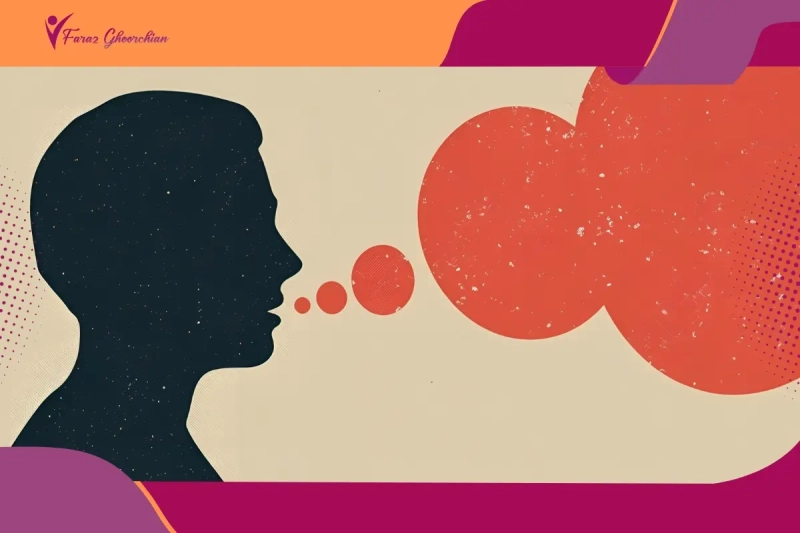- 1. Why Do You Feel So Tired in the Afternoon?
- 2. Understanding Your Chronotype and Afternoon Fatigue
- 3. How Poor Sleep Causes Afternoon Tiredness
- 4. Foods That Fight Afternoon Fatigue: What to Eat and When
- 5. Blood Sugar Crash: The Hidden Cause of Afternoon Sleepiness
- 6. Does Dehydration Cause Afternoon Tiredness?
- 7. Lifestyle Changes to Prevent Afternoon Tiredness
- 8. How to Stay Energized at Work in the Afternoon
- 9. Best Exercises to Reduce Afternoon Fatigue
- 10. How Caffeine Affects Afternoon Energy
- 11. Is Napping Good for Afternoon Tiredness?
- 12. Supplements, Herbal Remedies, and Biohacks
- 13. Screen Fatigue and Hormonal Causes of Afternoon Tiredness
- 14. Stress, Mood, and Afternoon Productivity
- 15. Morning Routine to Avoid Afternoon Fatigue
- 16. FAQs
Why Do You Feel So Tired in the Afternoon?
Many people wonder how to stop feeling tired in the afternoon, but understanding the root cause is the first step. Afternoon fatigue is often linked to your natural body clock, also known as your circadian rhythm. After lunch, blood sugar changes and digestion and afternoon tiredness often go hand in hand, making you feel sluggish. Poor sleep the night before, dehydration, or even stress can make this dip in energy worse. Recognizing these patterns is essential to choosing the best ways to fight afternoon tiredness and reclaim your energy.
Understanding Your Chronotype and Afternoon Fatigue
Your chronotype is your body’s natural preference for waking and sleeping, which directly affects afternoon fatigue. Some people feel most alert in the morning, while others have more energy later in the day. If you are searching for how to stop feeling tired in the afternoon, understanding your chronotype can help you plan activities for times when your energy is naturally higher. This personalized approach makes it easier to avoid the classic midday slump. By identifying your own rhythm, you can schedule demanding tasks earlier or later to match your peak hours. Taking chronotype into account helps you use your energy wisely and find the most effective ways to prevent afternoon tiredness and boost afternoon productivity.
How Poor Sleep Causes Afternoon Tiredness
Quality sleep is the foundation of steady energy throughout the day. If you struggle with restless nights or poor sleep quality, you are much more likely to experience afternoon tiredness and difficulty staying focused. Disrupted sleep patterns can throw off your circadian rhythm, causing your body to crave rest at the wrong times. Issues like sleep apnea and daytime fatigue, frequent waking, or simply not getting enough hours of sleep reduce the amount of deep, restorative rest your brain and body need. As a result, your alertness starts to drop, especially after lunch, when your body naturally wants to recharge. Understanding how poor sleep causes afternoon tiredness is key for anyone searching for solutions on how to stop feeling tired in the afternoon. Prioritizing consistent sleep routines and addressing any underlying sleep disorders can dramatically improve your afternoon energy and productivity.
Foods That Fight Afternoon Fatigue: What to Eat and When
Choosing the right foods that fight afternoon fatigue can make a big difference in your daily energy levels. Instead of reaching for sugary snacks, focus on balanced meals that combine lean protein, healthy fats, and complex carbohydrates. Foods like grilled chicken, eggs, whole grains, leafy greens, nuts, and seeds provide slow-releasing energy that helps prevent a blood sugar crash in the afternoon. Timing also matters: eating lunch at the right hour supports better digestion and keeps you feeling steady, rather than sleepy. Consider eating smaller, nutrient-rich meals to reduce the risk of afternoon tiredness linked to heavy or processed foods. Including hydrating options like fruits and vegetables also supports focus and stamina. If you are looking for advice on how to stop feeling tired in the afternoon, start by adjusting your lunch choices and meal timing to support natural energy and avoid afternoon slumps.
Blood Sugar Crash: The Hidden Cause of Afternoon Sleepiness
A common but often overlooked reason for afternoon tiredness is the sudden drop in blood sugar after lunch, known as a blood sugar crash in the afternoon. When you eat a meal that is high in refined carbohydrates or sugar, your blood glucose spikes quickly, then plummets just as fast. This sharp decline can leave you feeling groggy, unfocused, and craving more sweets. To avoid this slump, pay attention to the best time to eat lunch to avoid tiredness and try to balance your meals with fiber-rich vegetables, lean protein, and healthy fats, which help maintain steady energy and prevent rapid fluctuations. Understanding the role of blood sugar in your energy cycle is essential if you want to know how to stop feeling tired in the afternoon. Smart food choices can make your afternoons more productive and keep sleepiness at bay.
Does Dehydration Cause Afternoon Tiredness?
Many people do not realize that even mild dehydration can lead to afternoon tiredness and a noticeable drop in focus. When your body lacks enough water, blood flow to the brain slows down, making you feel sluggish and less alert. Studies show that dehydration is a frequent cause of energy crashes, so keeping a water bottle nearby is one of the easiest ways to fight the afternoon slump. If you often wonder, does dehydration cause afternoon tiredness, the answer is yes. Drinking water regularly throughout the day, especially before and after lunch, can help maintain consistent energy. Pairing hydration with a balanced meal is a powerful strategy for anyone searching for how to stop feeling tired in the afternoon.
Lifestyle Changes to Prevent Afternoon Tiredness
Simple lifestyle changes to prevent afternoon tiredness can make a lasting difference in your daily energy and focus. Prioritizing a regular sleep schedule helps your body stay aligned with its natural rhythm. Scheduling short movement breaks every hour keeps blood circulating and prevents energy slumps. If you work at a desk, try standing up and stretching, or take a quick walk outside. Managing stress is just as important, so find quick ways to reset, such as deep breathing or mindfulness exercises. If you need inspiration, you can learn how to relieve stress quickly for instant relief. Balancing screen time and stepping away from devices also helps fight fatigue. By making small adjustments to your routine, such as drinking water, choosing healthy snacks, and getting fresh air, you can master how to stop feeling tired in the afternoon and enjoy steady energy throughout the day.
How to Stay Energized at Work in the Afternoon
Finding effective ways for how to stay energized at work in the afternoon is essential if you want to beat the midday slump and maintain productivity. Start by scheduling your most important or creative tasks during your natural peak hours. Take short, active breaks throughout the day by standing up, stretching, or trying simple desk exercises to keep your blood flowing. If possible, sit near a window or go outside for a few minutes to benefit from natural light. Choose protein-rich snacks over heavy, carb-laden options to prevent afternoon tiredness and help stabilize your energy. Keeping a water bottle at your desk ensures you stay hydrated, which is crucial for focus. Biohacks for avoiding afternoon fatigue, such as practicing mindfulness or a quick meditation, can help refresh your mind. By using these strategies, you will discover how to stop feeling tired in the afternoon and make your afternoons more productive.
Best Exercises to Reduce Afternoon Fatigue
One of the best exercises to reduce afternoon fatigue is simply getting up and moving your body, even for a few minutes. A brisk walk around the office or outdoors boosts circulation and refreshes your mind. Gentle stretches at your desk can release muscle tension that builds up during long periods of sitting. For a quick energy boost, try a set of squats, calf raises, or light yoga poses. These activities help fight afternoon tiredness by increasing oxygen flow and improving alertness. If you are searching for practical ways on how to stop feeling tired in the afternoon, short bursts of movement throughout the day can make a significant difference. Regular physical activity also supports overall health, making it easier to stay energized both mentally and physically.
How Caffeine Affects Afternoon Energy
Caffeine is often used as a quick fix for afternoon tiredness, but its effects can be a double-edged sword. While a cup of coffee or tea may offer a temporary boost, consuming caffeine too late in the day can interfere with your sleep cycle, making you feel even more fatigued the next day. If you are curious about how caffeine affects afternoon energy, consider limiting your intake to the early afternoon and exploring alternatives such as herbal remedies for afternoon tiredness. Finding the right balance can help you discover how to stop feeling tired in the afternoon without disrupting your rest.
Is Napping Good for Afternoon Tiredness?
A short nap can be a helpful solution for afternoon tiredness if used wisely. Research suggests that a nap of 10 to 20 minutes can restore alertness and improve mood without causing grogginess. If you want to know is napping good for afternoon tiredness, timing and duration are crucial. Long naps or sleeping too late in the day can disrupt your nighttime rest, leading to more fatigue. The key is to listen to your body and use brief naps as a tool. For many people, strategic rest is an effective way to stop feeling tired in the afternoon and stay productive.
Supplements, Herbal Remedies, and Biohacks
For those who want extra help with how to stop feeling tired in the afternoon, the right supplements and natural remedies can make a difference, especially when considering afternoon fatigue and chronotypes. The best supplements for afternoon tiredness often include B vitamins, magnesium, or adaptogens like ashwagandha, which support natural energy without a crash. Many people also find that herbal remedies for afternoon tiredness, such as ginseng or matcha, help them feel more alert and focused. Simple biohacks for avoiding afternoon fatigue include stepping outside for sunlight, practicing deep breathing, or using a standing desk to improve circulation. Always consult a healthcare professional before starting new supplements. Integrating these strategies with a healthy lifestyle gives you more options to maintain energy and productivity as the day goes on.
Screen Fatigue and Hormonal Causes of Afternoon Tiredness
Prolonged screen time is a major factor in screen fatigue causing afternoon tiredness. Staring at computers and mobile devices for hours can strain your eyes, lead to headaches, and reduce mental clarity, all of which make fatigue worse as the day progresses. Regular screen breaks, eye exercises, and blue light filters help reduce this digital strain. On top of this, hormonal fatigue in the afternoon can also play a role. Fluctuations in cortisol and blood sugar may leave you feeling sluggish, especially if you experience stress or irregular eating patterns. Recognizing these factors and taking steps like standing up, stretching, or practicing mindful breathing supports your search for how to stop feeling tired in the afternoon and helps maintain focus.
Stress, Mood, and Afternoon Productivity
Daily stress is a common trigger for afternoon tiredness and a noticeable drop in mood. When your mind is overloaded with worries or deadlines, your energy reserves deplete more quickly, making it hard to focus or get work done. Learning how to be less stressed can help you discover how to boost afternoon productivity by breaking the cycle of fatigue. Techniques like deep breathing, short walks, or listening to calming music give your brain a chance to reset. Even a few minutes of mindful activity can restore focus and help you discover how to stop feeling tired in the afternoon. Managing stress is not just about relaxation; it is also essential for maintaining high energy and staying motivated throughout your day.
Morning Routine to Avoid Afternoon Fatigue
Building a mindful morning routine to avoid afternoon fatigue is a powerful way to support lasting energy and reduce stress and afternoon fatigue. Start your day with hydration and a balanced breakfast that combines protein, whole grains, and healthy fats. Light exercise, such as stretching or a brisk walk, wakes up your body and boosts circulation. Practicing gratitude or mindfulness in the morning helps set a positive mood, supporting both focus and resilience. For those who want to know how to be happy in life always, creating a purposeful morning sets the tone for productivity and helps prevent afternoon tiredness before it even begins.
FAQs
1- Why do I experience afternoon tiredness every day?
Consistent afternoon tiredness can be linked to poor sleep, dehydration, unbalanced meals, or stress. Understanding your personal habits helps reveal the cause.
2- What foods fight afternoon fatigue?
Choose foods with lean protein, whole grains, and healthy fats. These options help prevent a blood sugar crash in the afternoon and keep energy steady.
3- Can lifestyle changes really help?
Yes, simple lifestyle changes to prevent afternoon tiredness such as staying active, managing stress, and maintaining hydration are highly effective for boosting afternoon energy and focus.


















